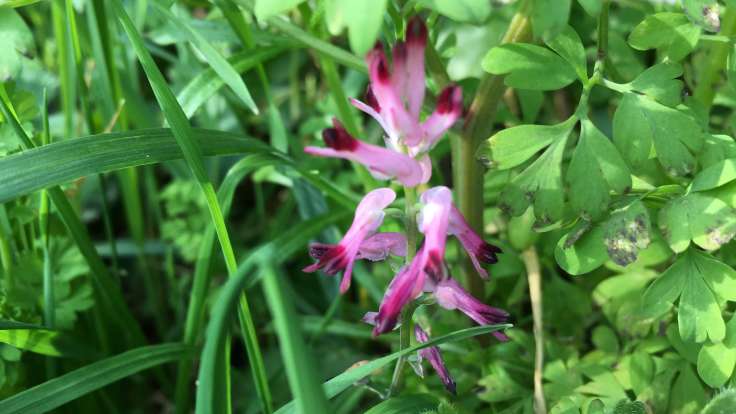
Fumitory growing wild near the forest garden
Humans are strange creatures, capable of abstracting their minds unfathomable distances from their situation. There is a need somehow to escape, to get away. Maybe it’s because I grew up in a small English market town, fled South then North then West, all the while yearning for the ethereal cosmopolitan.
Benajamin Vogt’s book ‘A New Garden Ethic’ has brought me back to earth with a definite and welcome bump. I am wary of the parochial, repelled by small-mindedness, terrified by The League of Gentlemen (a UK comedy about a small northern town with the catchphrase “This is a local shop, for local people”).
But. Small does not have to mean small-minded, it can be expansive and hugely liberating. Vogt’s book has struck a chord because at its core it’s about gardening for species other than ourselves. Vogt calls this “human supremacy”, which makes some people squirm. I think it’s the right choice of words: the destruction of our natural world (and ultimately ourselves) is all about human supremacy.
By limiting our palette to native plants where possible, we are benefitting entire ecosystems, because local wildlife has co-evolved with local plants. The Database of Insects and their Food Plants is a UK monument to these countless inter-relationships. And by limiting our palette, we are forced to re-evaluate the role, function and design of a garden and in the process re-kindle our creativity with purpose and thought.
The obverse of such localism is the industrialisation of everything. Charlie Warner from local peat-free nursery Grown In Wales gave an eye-opening account of the multi-million, multi-national nursery trade. It is a factory. Plants are units. The bottom line is not what you would want it to be. This pattern repeats itself across industries. I read a fascinating book about starting your own business called The E-Myth. In essence, whatever your business, streamline the process into a replicable format.
This search for universality is a million miles away from the specific patch of nature that surrounds each of us. None of it is the same, it is always different, and therein lies the attraction. Infinity is in the smallest places and it is a life’s work to explore that richness and variety, and celebrate that diversity.
We shall not cease from exploration
And the end of all our exploring
Will be to arrive where we started
And know the place for the first time.